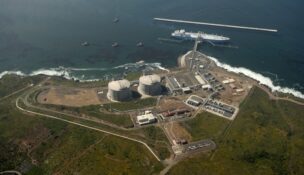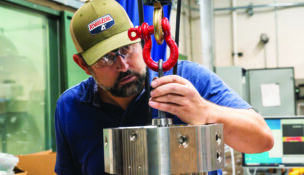Clean Energy Powers Colorado's Economy
Colorado’s path toward developing clean energy industries has and will continue to be good for business
Ted White //October 1, 2018//


Clean Energy Powers Colorado's Economy
Colorado’s path toward developing clean energy industries has and will continue to be good for business
Ted White //October 1, 2018//

Over the past 15 years, Colorado has established itself as a clean energy leader nationally. The state started down that road in 2004, with the nation’s first-ever voter-approved Renewable Energy Standard (RES). This early action spurred area entrepreneurs to innovate alongside increased investment. We have taken similar steps by better controlling methane emissions and transitioning from aging coal plants to cheaper and cleaner energy sources. We now have the opportunity to advance further down that path by adopting clean-car standards that will embody our state’s clean energy leadership well into the future. These standards will cement the formula for success that has made the clean energy sector a powerful economic force in Colorado.
Progress has not occurred in a partisan vacuum – clean energy initiatives have support on both sides of the aisle and throughout the state. Clean energy works for the state and economic data continues to prove its success and importance to our economy.
According to a recent Advanced Energy Economy employment report, more than 60,000 Coloradans are working in the advanced energy industries. Back in 2004, Coloradans had no idea that in the wake of the voter-approved RES, the state would become a hub of clean, advanced energy, which has served to diversify our economy further, not just along the Front Range, but throughout the state.
We now have another chance to seize a big opportunity. This June, Gov. John Hickenlooper directed the Colorado Department of Public Health and Environment to develop a rule establishing a Colorado low-emission vehicle (LEV) program to be voted on by the Air Quality Control Commission by the end of 2018. Colorado will thereby become the 14th state in the U.S. to voluntarily adopt the California standards, an option made possible by a federal waiver that allows states to aim higher than the federal standards. This standard will reduce harmful pollution while creating a market for dozens of other low-emission passenger vehicles that otherwise would not be available at Colorado car dealers. At the same time, it helps Colorado families save thousands of dollars over the life of a vehicle. The Commission will later consider a zero electric vehicle program, which would further advance Colorado’s strength in this sector.
Just as important as the Governor’s action itself was the timing.
This August, the Trump Administration announced plans to roll back federal automotive emission standards. The higher standards set in 2012 harmonized federal and California requirements for the first time. In announcing the rollback, the Trump Administration is also taking aim at the right of states to set more rigorous requirements for themselves. As the one state adopting higher standards when they are under threat, Colorado declared it would not go along with a weakening of our national commitment to clean air and fuel efficiency or the erosion of a longstanding state prerogative to reach higher.
Above all, establishing an LEV program has potential for Colorado. This standard is consistent with all the steps the state has taken to protect and improve air quality and will contribute to the state's goal of reducing greenhouse gas emissions by more than 26 percent by 2025. It is also a logical complement to the ongoing shift to cleaner energy sources for electricity generation, as well as the state's Electric Vehicle Plan, adopted to ensure EVs reach their potential as an alternative to gasoline and diesel-powered transport.
Furthermore, an LEV program will be good for Colorado drivers. Assessments by state and federal regulators have determined these standards are technologically achievable and greater fuel efficiency will save motorists money from lower fuel costs. In Colorado, we love our pickup trucks, and the Big Three automakers have announced new models with hybrid powertrains that produce more torque with less pollution – providing higher standards can not only be met, but they can also make vehicles better for driving and hauling.
The adoption of LEV programs will also send a strong signal to our homegrown clean energy industry – including manufacturers, developers and investors – that Colorado is open for business in the energy technologies of the future. That is a message we, along with a number of other business leaders, delivered to Governor Hickenlooper as he was considering his executive order, and we thank him for his leadership with this important step forward.
With this action, Colorado, along with the 13 other states and the District of Columbia that have adopted the higher standards, joined the fight to protect our air and our climate, and for a good reason. If the Trump Administration succeeds in rolling back federal standards and imposing lower standards on states, it will increase carbon dioxide emissions in Colorado by nearly 2 million tons a year by 2030. That would be a big setback to Colorado’s committed path toward a clean energy future. However, thanks to Governor Hickenlooper, Colorado has taken a stand on the right side of automotive history.
Our state has changed a lot since that vote for a renewable energy standard in 2004, but Colorado’s path toward developing our clean energy industries has and will continue to be good for business and good for Colorado.
Ted White, name partner of Moye White LLP, focuses on corporate transactions such as mergers and acquisitions, and financings for business in a variety of sectors including advanced energy. Reuben Munger is founder of Vision Ridge Partners, an investment firm that specializes in identifying idiosyncratic sustainable real assets, leveraging decades of experience in sustainability, value investing and real assets.
























